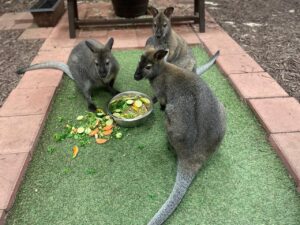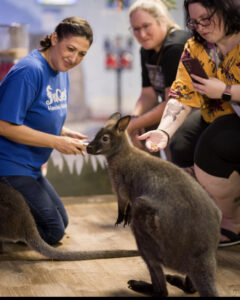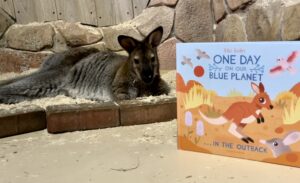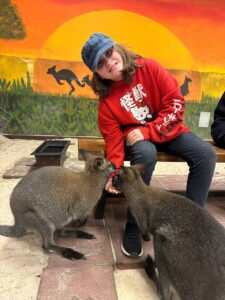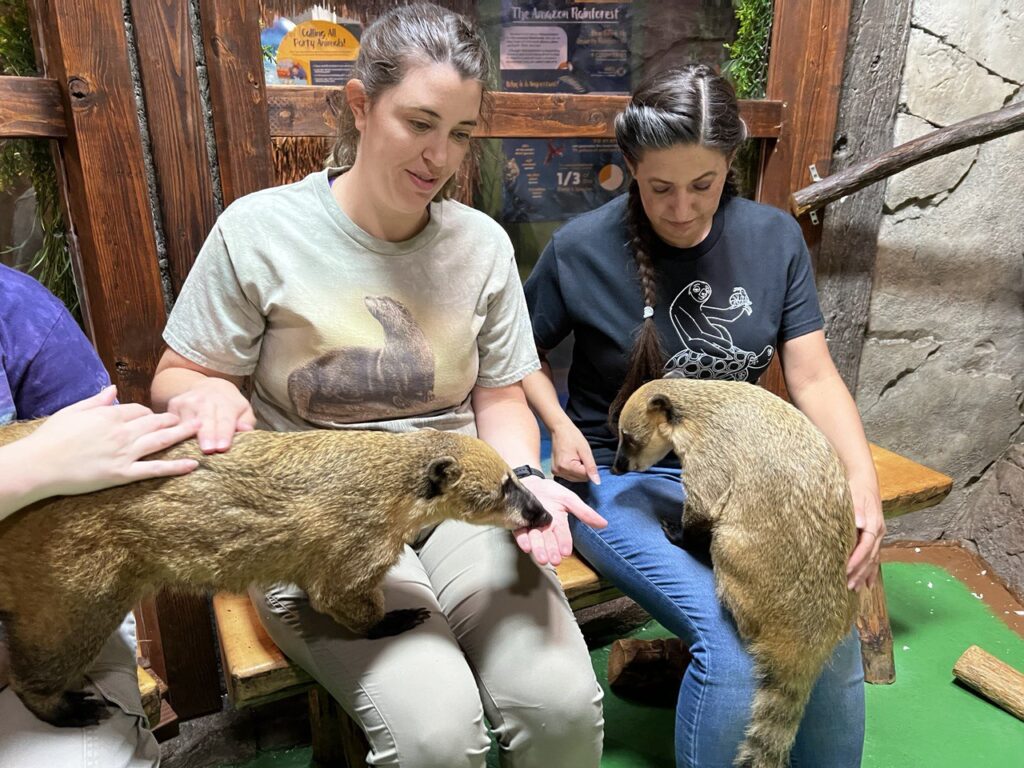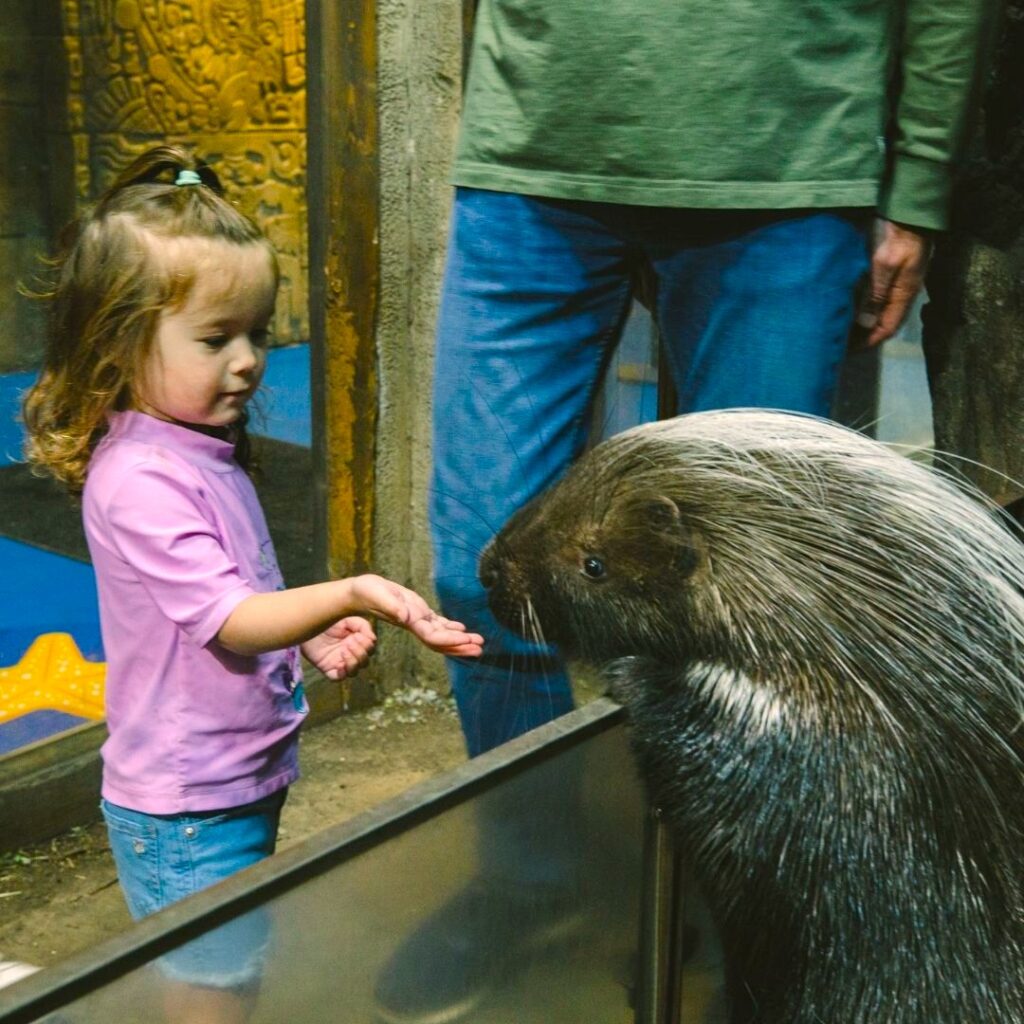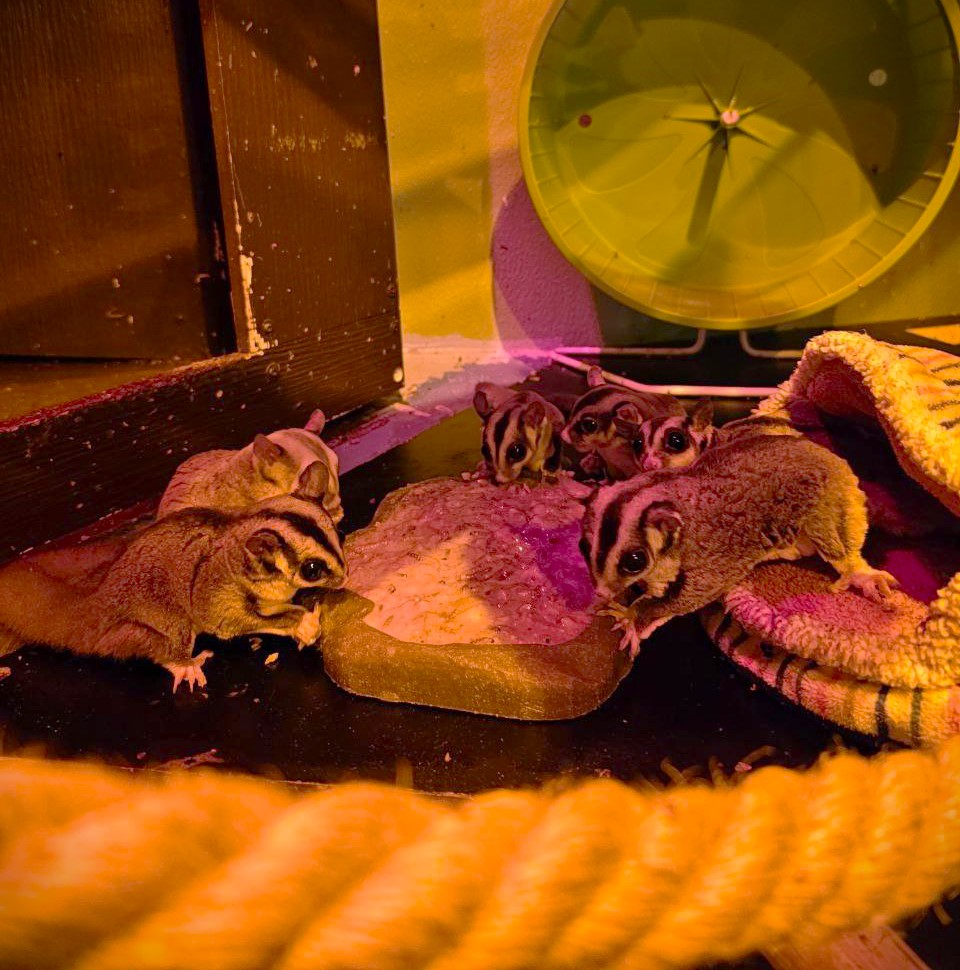How Are Wallabies at SeaQuest Cared For?
Share it on:
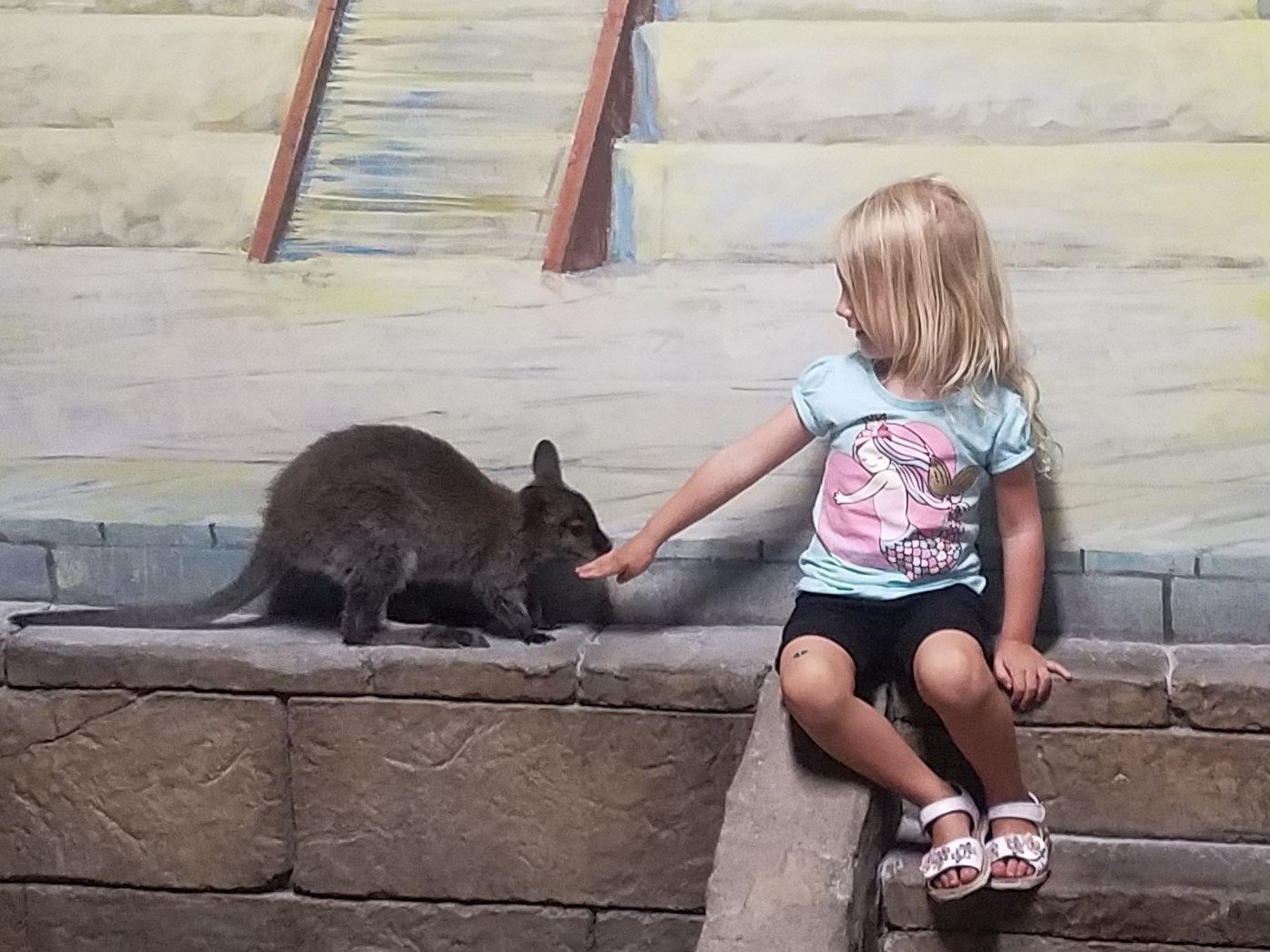
At SeaQuest, providing excellent animal care is our top priority. This is especially true for our wallabies. These small—to medium-sized marsupials, resembling miniature kangaroos, require specialized care to thrive in a controlled environment.
Here, we’ll give you a closer look at the efforts and expertise that go into maintaining the well-being of wallabies, demonstrating SeaQuest’s commitment to the welfare of all its residents. Join us as we dive into the world of wallaby care at SeaQuest, where the health and happiness of these unique creatures are always front and center.
What Are Wallaby Enclosures Like at SeaQuest?
At SeaQuest, we go to great lengths to ensure our wallaby enclosures closely replicate the natural habitats these creatures are accustomed to. Every aspect of their environment, from the types of plants and soil to the layout of the space, is carefully designed to mimic the Australian bushland and grassy areas where wallabies roam freely.
This way, wallabies can engage in natural behaviors, such as grazing and hopping, in a setting that feels like home. Our enclosures are equipped with sheltered areas for resting, varied terrain for exploration, and plenty of space for these active animals to move around, reflecting our commitment to providing a life that’s as natural and enriching as possible.
How Much Space Do Wallabies Need?
Space is a crucial factor in the well-being of wallabies at SeaQuest. Given their active nature and need for physical exercise, it is paramount to ensure that wallabies have ample room to move. SeaQuest’s enclosures are spacious and thoughtfully designed to allow for the wallabies’ natural hopping and grazing behaviors. By providing an environment that allows for these natural movements, we cater to their physical needs and contribute to their overall happiness and health. Our dedication to creating such a space reflects our broader commitment to the welfare of the wallabies in our care.
Wallaby Feeding Practices at SeaQuest
Feeding the wallabies at SeaQuest is a carefully managed process that ensures they receive all the nutrients they need for a healthy life. Our wallabies eat a specialized diet that mimics what they would eat in the wild, consisting mainly of grasses, leaves, and, occasionally, fruits and vegetables. This diet is rich in fiber, which is essential for their digestive health.
SeaQuest’s feeding schedule is meticulously planned to align with the wallabies’ natural feeding habits, promoting optimal health and well-being. Through these tailored nutritional practices, we ensure that our wallabies survive and thrive under our care.
How Does SeaQuest Address the Health of Its Wallabies
Ensuring the health and well-being of wallabies at SeaQuest involves a comprehensive approach centered around regular check-ups, preventive care, and rapid response to any medical needs. Our dedicated veterinary team specializes in exotic animal health, providing the expertise necessary to maintain the highest standards of care for these unique creatures.
Regular Health Checkups
At SeaQuest, routine veterinary care for wallabies is a cornerstone of our health management strategy. We employ an in-house veterinarian who checks our animals monthly and must approve any wallaby lifestyle changes.
These regular check-ups include thoroughly examining each wallaby and assessing their overall health, weight, and any signs of illness or discomfort. Preventive measures, such as vaccinations and parasite control, are integral to our approach, helping to ward off diseases before they become a problem. Our veterinary team also closely monitors the wallabies’ behavior and physical condition between check-ups, ensuring any changes in health are addressed promptly. This proactive approach to health care underscores our commitment to the wallabies’ long-term well-being.
Medical Attention and Emergency Protocols
Regarding medical issues or emergencies, SeaQuest has established protocols to ensure swift and effective care for our wallabies. Our on-site veterinary team is equipped to handle various medical treatments, from minor injuries to more significant health concerns. We collaborate with external experts and facilities for cases requiring specialized care to provide the best possible outcomes.
Our emergency protocols are designed to mobilize our resources quickly, minimizing stress for the animal and ensuring they receive the necessary care without delay. This readiness to respond to any health issue is a testament to our dedication to the safety and well-being of the wallabies under our care.
Wallaby Enrichment Activities at SeaQuest
At SeaQuest, we understand that the mental well-being of our wallabies is just as important as their physical health. Mental stimulation is crucial for maintaining these animals’ natural curiosity and vitality, preventing boredom, and promoting overall well-being. To achieve this, we’ve designed various enrichment activities that encourage natural behaviors and provide our wallabies with engaging, stimulating experiences.
Enrichment activities at SeaQuest are tailored to mimic the challenges and opportunities wallabies would encounter in the wild. These include puzzle feeders that stimulate problem-solving skills, various textures and materials in their enclosures to explore, and objects that encourage natural foraging behavior. We also introduce new items and change the enclosure’s layout periodically to keep the environment fresh and exciting for the wallabies.
Interactive elements, such as controlled guest encounters, are designed to enrich the wallabies’ experiences. They allow them to interact with new stimuli in a safe and controlled manner. By closely monitoring these interactions, we ensure they remain positive and stress-free for the animals.
Education and Conservation Efforts
At SeaQuest, education and conservation are at the forefront of our mission, especially regarding unique and captivating species like wallabies. We aim to care for these remarkable marsupials and foster a deeper understanding and appreciation for them among our visitors.
SeaQuest’s educational programs are designed to engage visitors of all ages. They offer interactive experiences, informative displays, and engaging presentations that delve into the life of wallabies. By providing insights into their natural behavior, diet, and role in the ecosystem, we encourage a greater awareness of these animals and the importance of their conservation. Our education efforts also extend to school programs, workshops, and community outreach, aiming to inspire a new generation of wildlife enthusiasts and conservationists.
SeaQuest collaborates with various organizations and participates in initiatives to protect wallabies and their natural habitats. These collaborations include habitat restoration projects, wallaby health and conservation research, and support for protective legislation.
Everyone has a role to play in conservation, and we encourage our visitors to actively participate in protecting wallabies and other wildlife. By offering information on how individuals can contribute, whether through supporting conservation organizations, adopting sustainable practices, or raising awareness about environmental issues, we aim to empower our audience to make a difference. We can ensure a brighter future for wallabies and the many other species that share our planet.
How Safe Are Wallaby Encounters at SeaQuest?
At SeaQuest, the safety and well-being of both our wallabies and visitors during encounters are top priorities. We take great care to ensure that every interaction is enjoyable and conducted in the safest manner possible.
Each wallaby encounter at SeaQuest is carefully supervised by our knowledgeable and experienced staff. These professionals are trained in animal behavior and welfare, ensuring they can guide the interaction process smoothly and intervene if necessary.
Before any wallaby encounter, visitors receive an educational briefing. This pre-encounter session is crucial for setting the stage for a safe and respectful interaction. During these briefings, visitors learn about the wallabies’ behaviors, what to expect during the encounter, and specific guidelines for behaving around these sensitive animals. Topics include the importance of quiet, calm movements, how to approach a wallaby, and why certain behaviors must be avoided to ensure the wallabies do not feel threatened.
SeaQuest provides clear interaction guidelines to enhance the safety and enjoyment of wallaby encounters. These guidelines are designed to protect both the wallabies and our visitors. They include instructions on gently touching the wallabies (if permitted), the areas to avoid touching, and how to interpret the wallabies’ behavior during the encounter. By educating our visitors on these guidelines, we aim to foster a sense of stewardship and respect for wildlife, enhancing the overall experience.
SeaQuest’s dedication to exemplary care for wallabies underscores our commitment to responsible animal care and conservation. Our approach extends beyond mere survival, aiming to foster well-being and happiness for these unique marsupials.
We encourage our readers to recognize the importance of responsible animal care practices and actively support conservation efforts. By visiting SeaQuest and participating in our educational programs, you increase awareness and understanding of the need to protect wallabies and other wildlife. Together, we can make a significant difference in these animals’ lives and preserve their natural habitats, ensuring they continue to thrive for generations.

